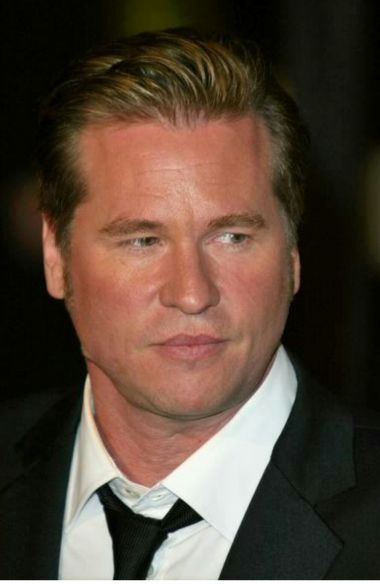Why Val Kilmer's Faith Probably Won't Help Him If He Has Oral Cancer

Val Kilmer was wrongly "outed" this week as suffering from oral cancer by fellow actor Michael Douglas, who suffered from the disease himself.
Speaking about the film The Ghost and The Darkness, in which the two appeared together, Douglas said that "things don't look too good" for Kilmer.
Kilmer himself flatly denied he was ill, saying in a Facebook post: "I love Michael Douglas but he is misinformed."
He said he was "rehabbing steadily" from "a swollen tongue" and had "no cancer whatsoever".
Kilmer is a Christian Scientist, and Christian Scientists' views of medicine are decidedly ambivalent, with some refusing to seek medical treatment at all. However, Kilmer said: "Some fans have mistakenly thought my silence about my personal issues meant that somehow I wasn't being responsible to my health, because of my reliance on prayer and Love.
"Nothing could be further from the truth... Being healthy and having the respect of my peers and love from my family, friends, peers and fans is a DAILY source of inspiration, for which I am so grateful."
But what is Christian Science, and why do some of its adherents decline medical treatment?
The movement was founded in the 19th century by Mary Baker Eddy (1821-1910), who taught in her book Science and Health that all reality is spiritual and that disease is an illusion. It is to be dealt with by prayer rather than medicine.
She came to this revelation after slipping on ice and injuring herself. Eddy said in Science and Health that she had read a Bible passage and "the healing Truth dawned upon my sense". She later wrote that "Dr Cushing of this city pronounced my injury incurable and that I could not survive three days because of it", though Cushing flatly denied it.
Eddy taught that sickness was a mental error, and that a right attitude could heal anything including cancer, diphtheria and tuberculosis. Disease was an illusion.
Christian Scientists say this healing is "not faith healing, positive thinking, or self-hypnosis. It calls for Christian faith in and understanding of God as unconditionally and dependably good, to whom nothing is impossible."
They also say that "Christian Scientists are always free to choose for themselves and their families the kind of health care that meets their needs. However, by practising Christian Science, many have lived happy and healthy lives free of drugs and other systems of physical care."
In practice, Christian Scientists are happy to have broken bones set and to wear glasses, but they believe prayer is most effective when it's not combined with medicine. Christian Scientists have been prosecuted for not providing medical care for their sick children.
However, Christian Science has long been described by orthodox believers as "neither Christian, nor scientific". It doesn't work, in terms of curing people, and Eddy's rejection of the material world and belief that suffering is an illusion reflect early Christian heresies. It departs from orthodox Christianity at every significant point in its doctrines.
In terms of his own faith, Kilmer has said: "I am a religious person. I do pray for specific needs. I do read the Bible every Sunday. I've read the Bible all of my life. I also pray for things that are going on in the world; it has given me a deeper sense of responsibility as a person."
And however unorthodox someone's beliefs are, we shouldn't assume someone has to believe exactly the right things before God will hear their prayers.











